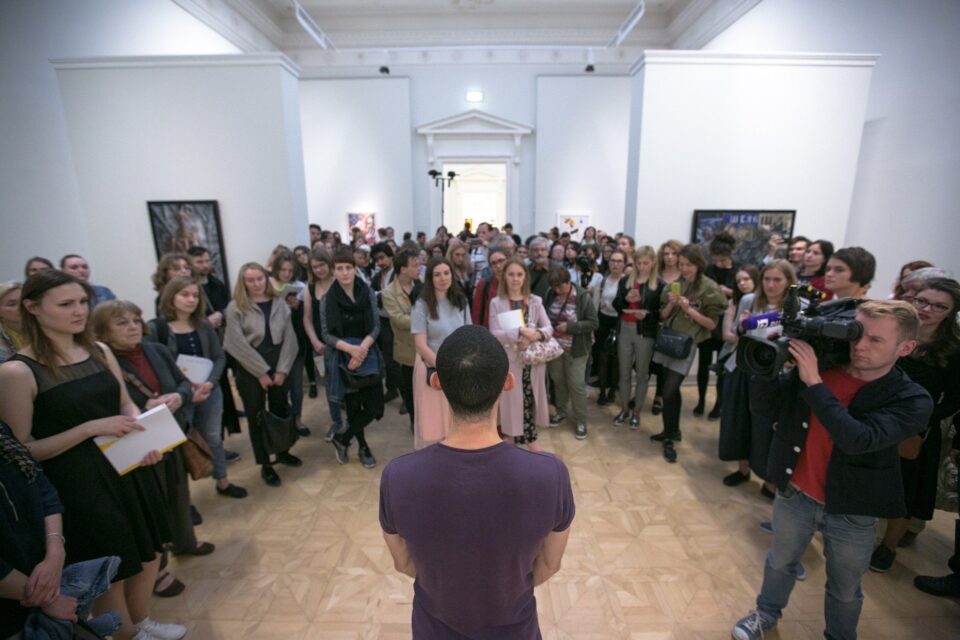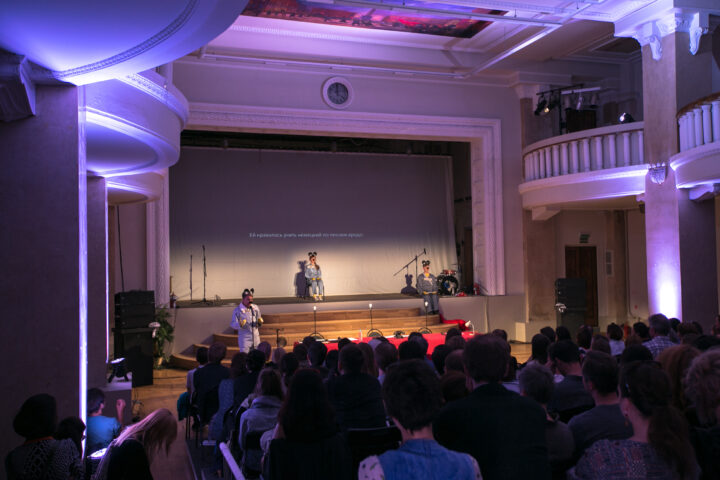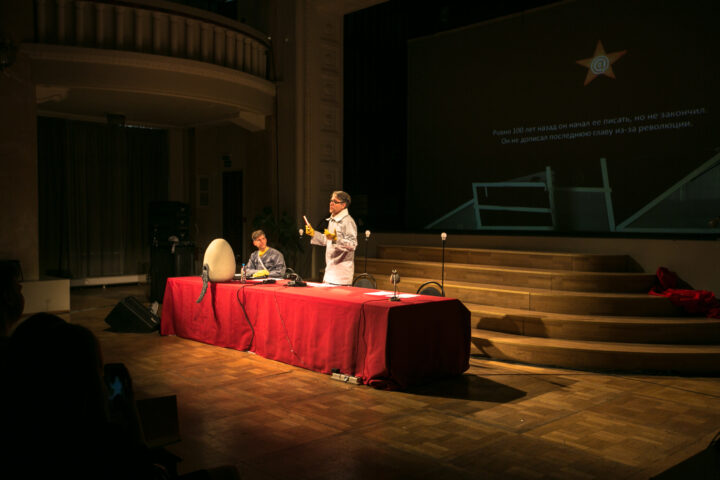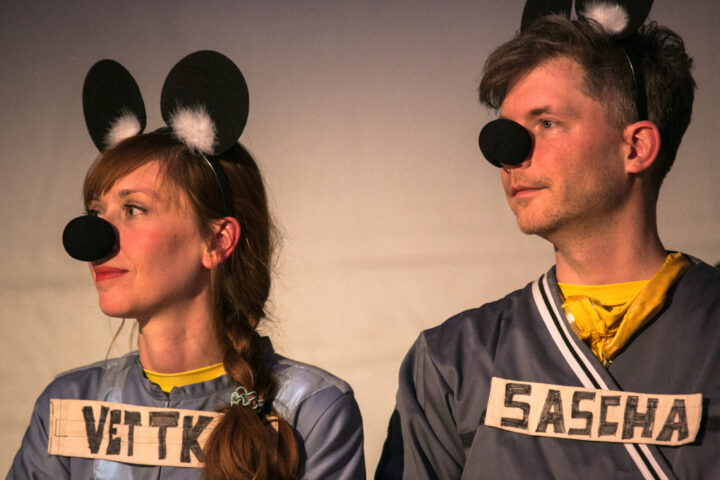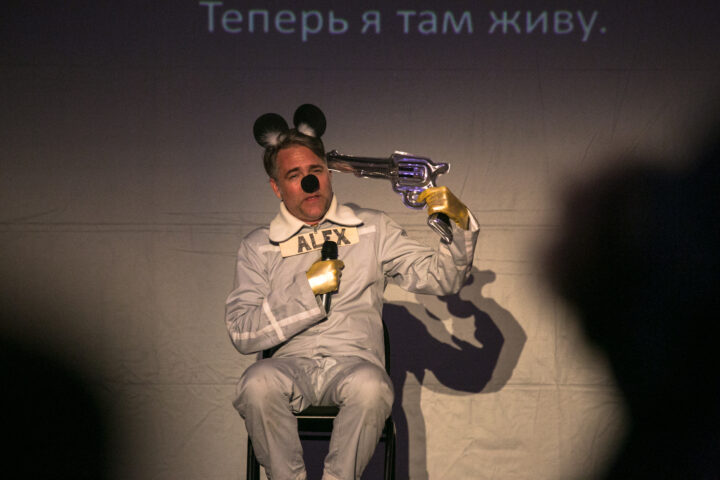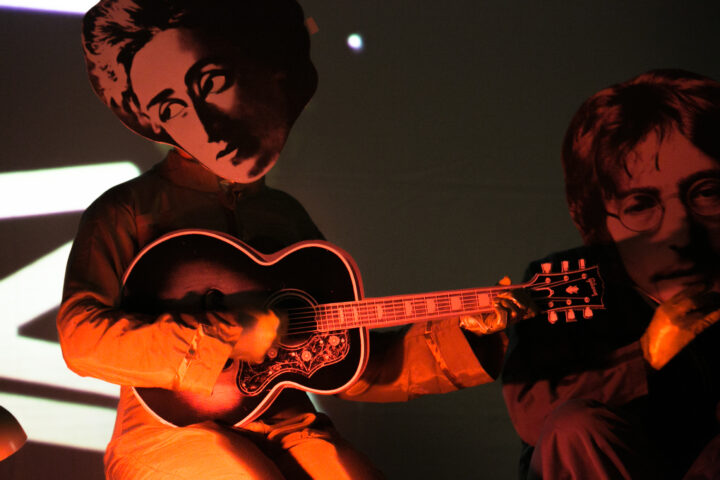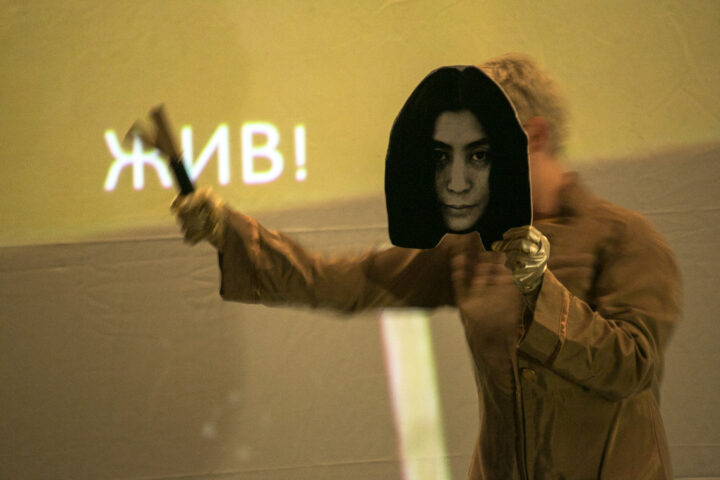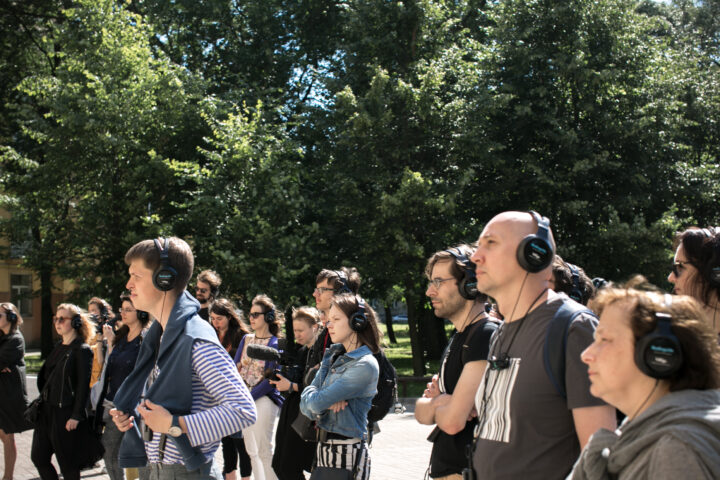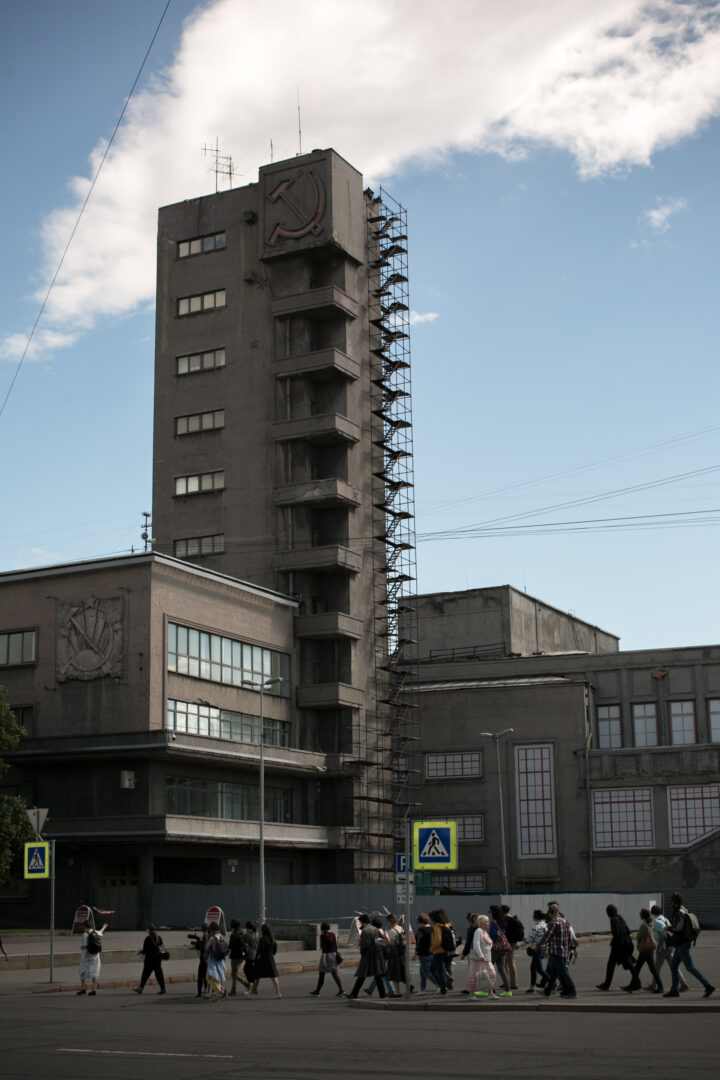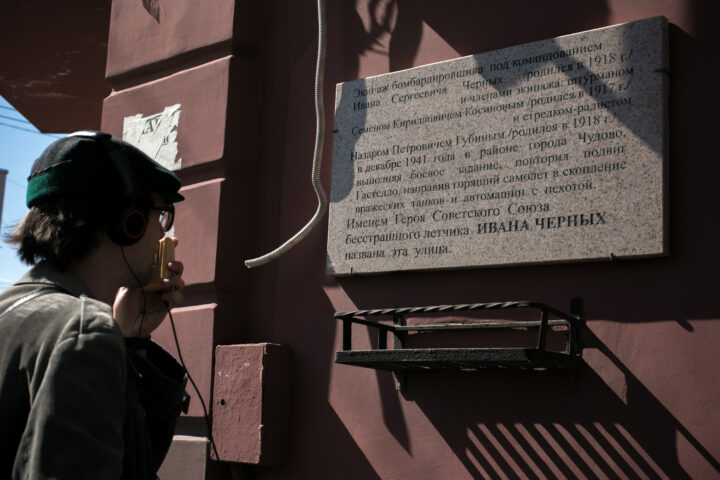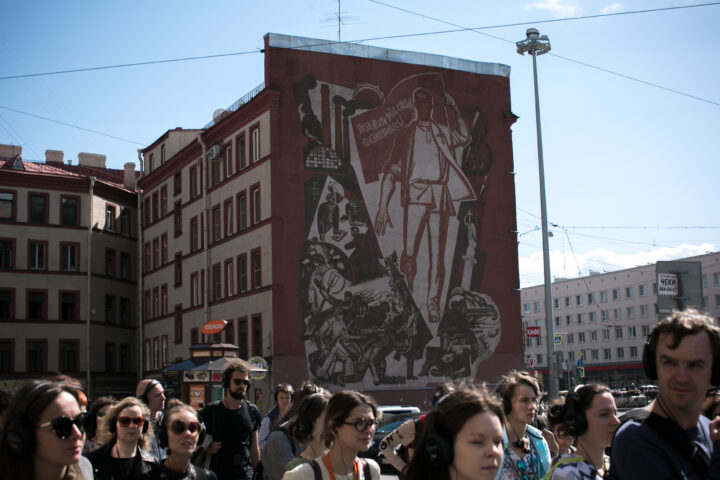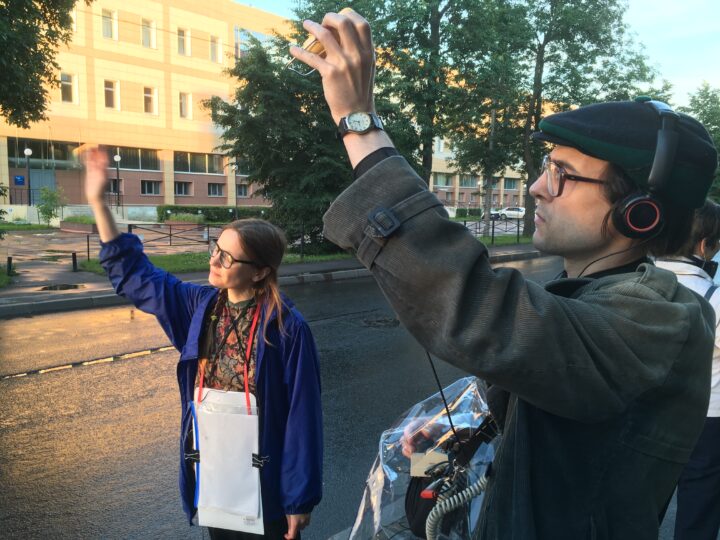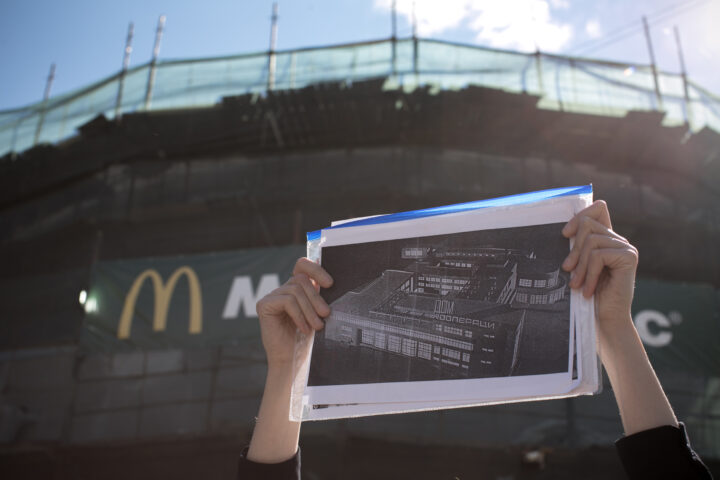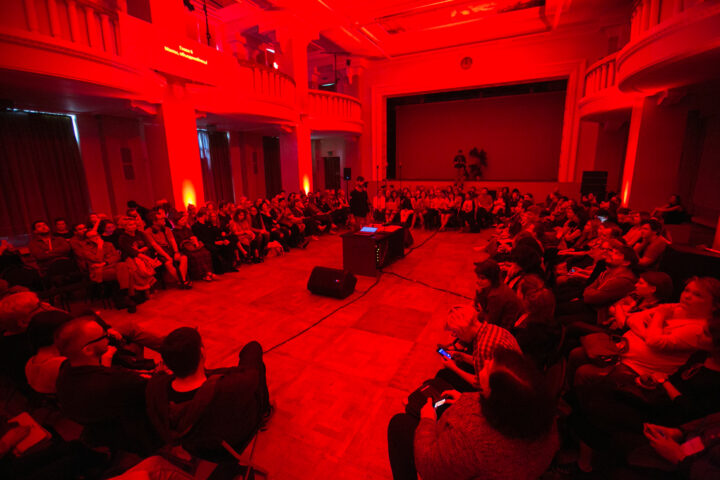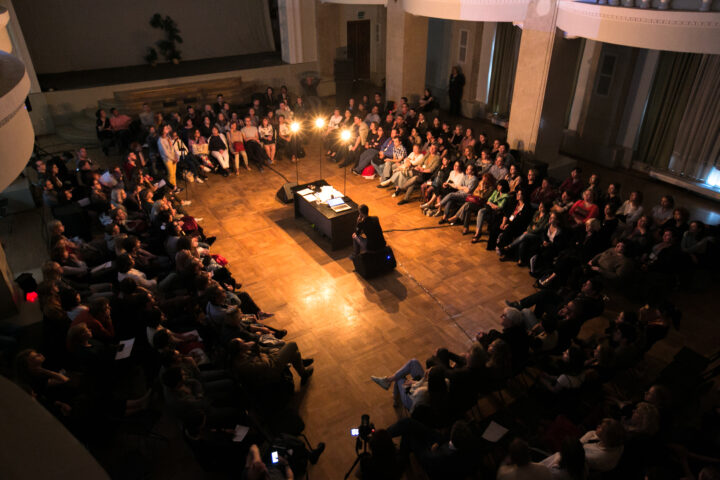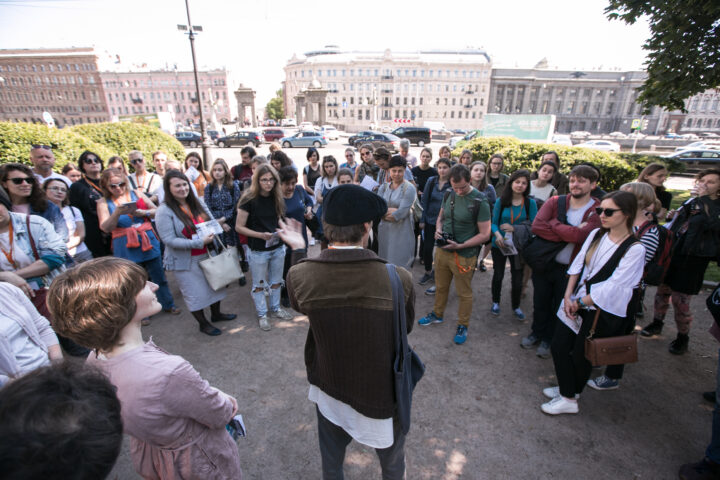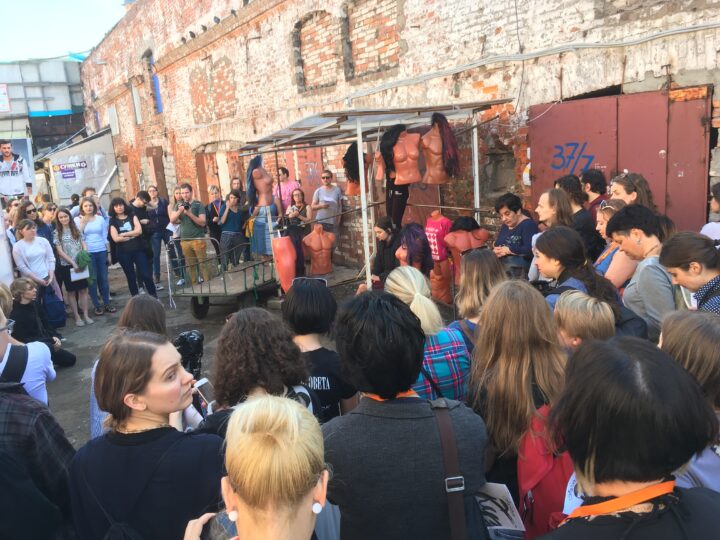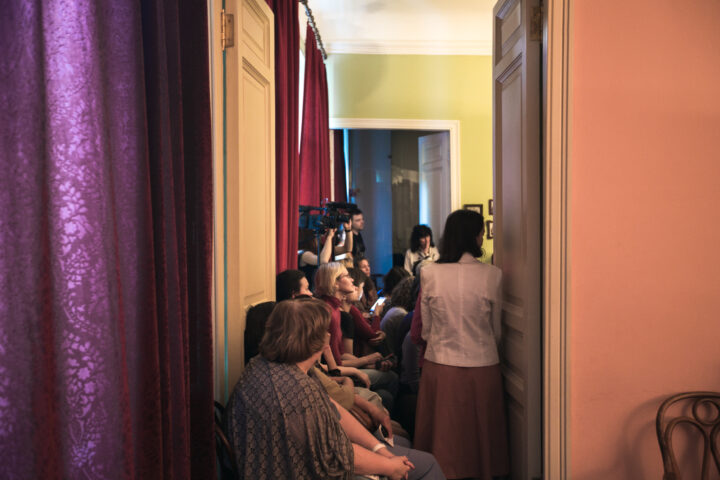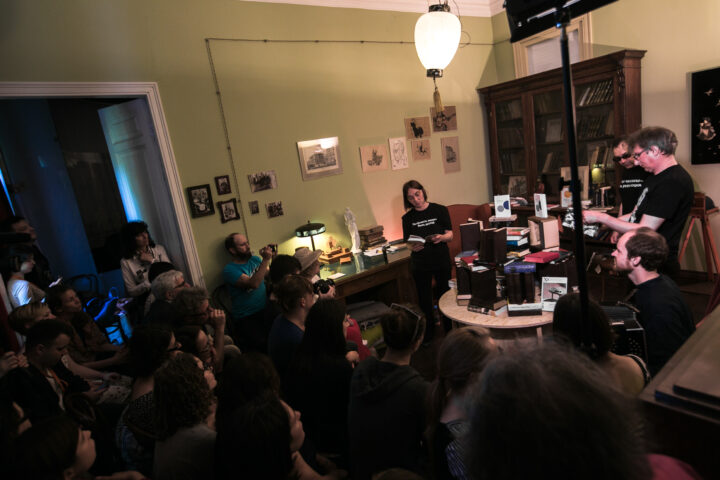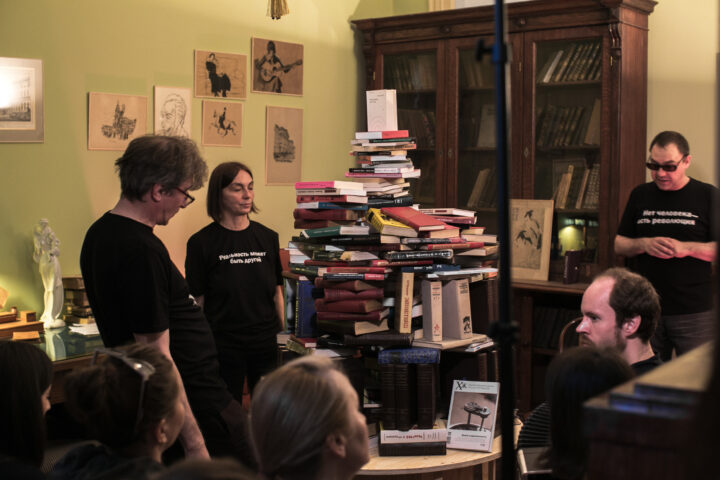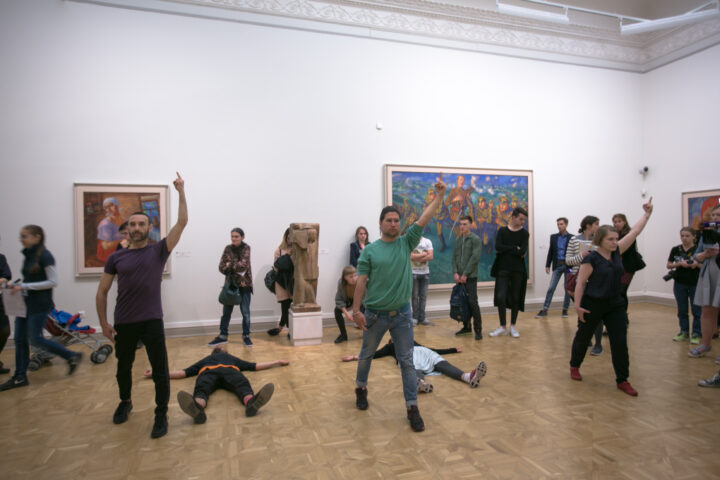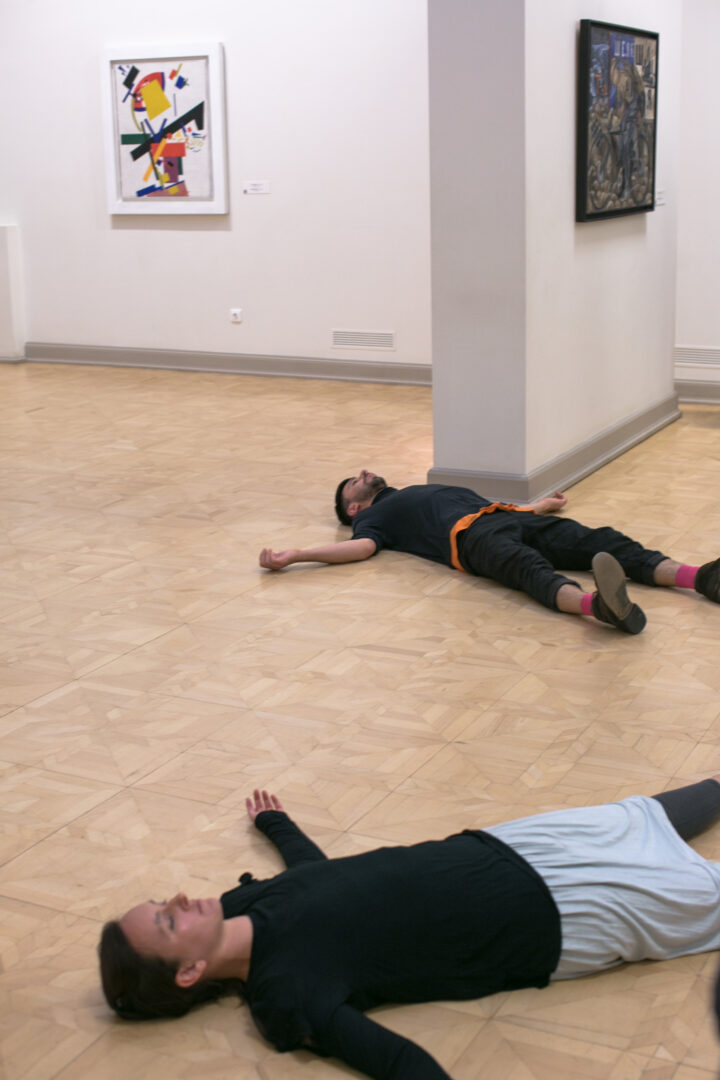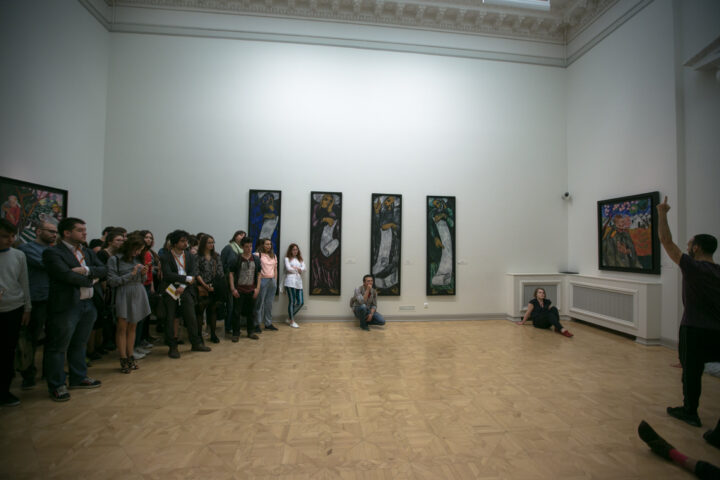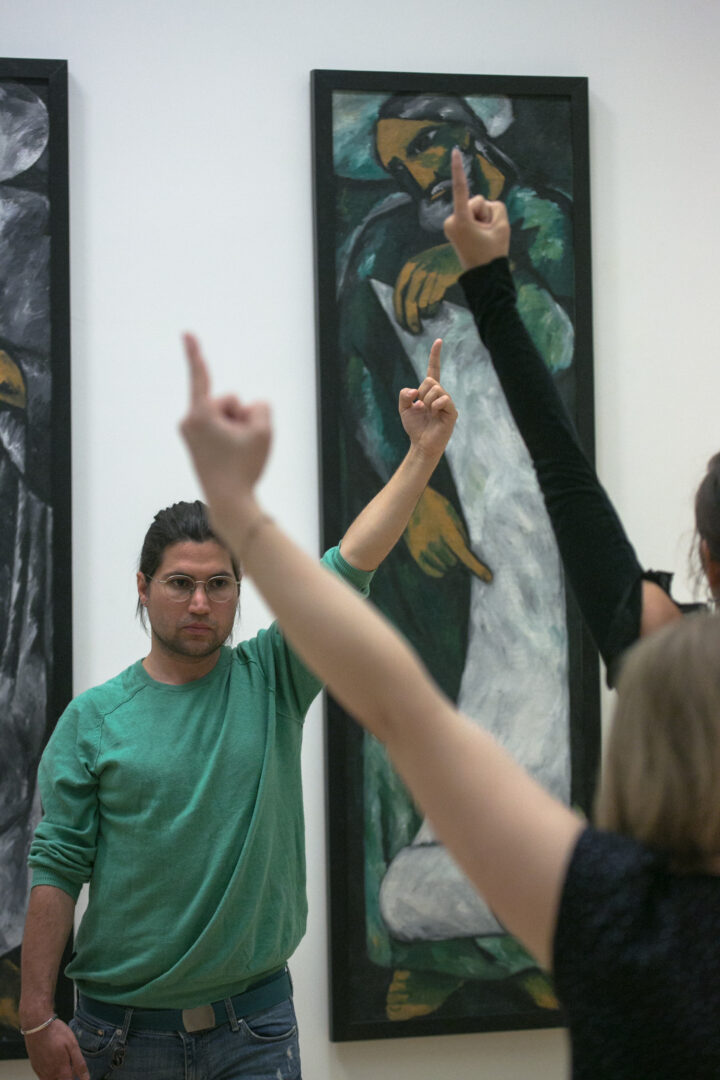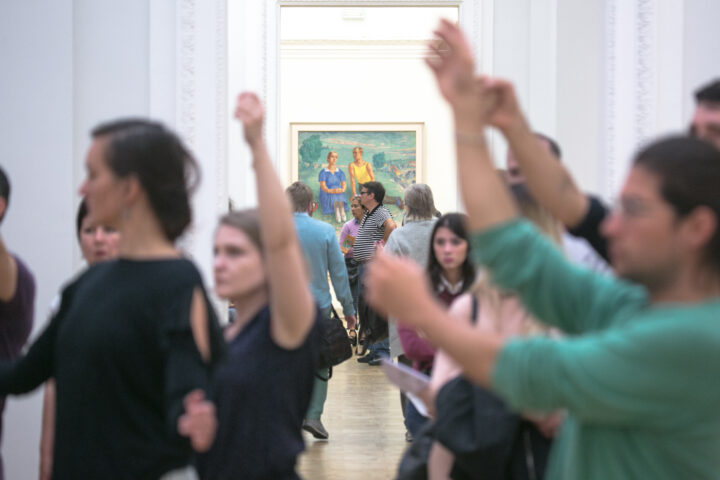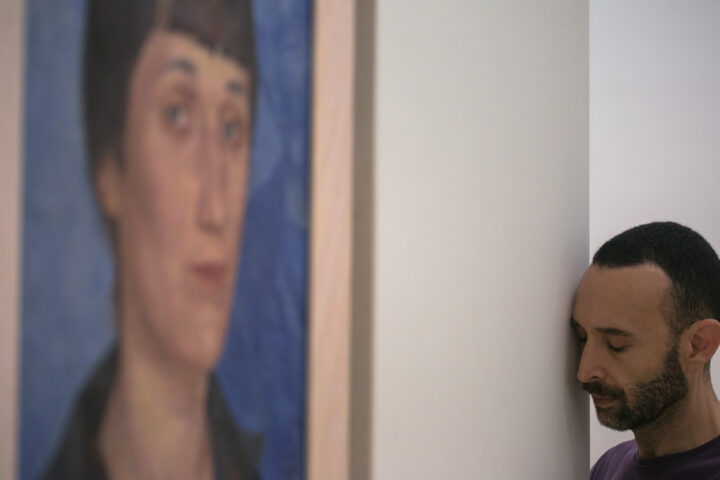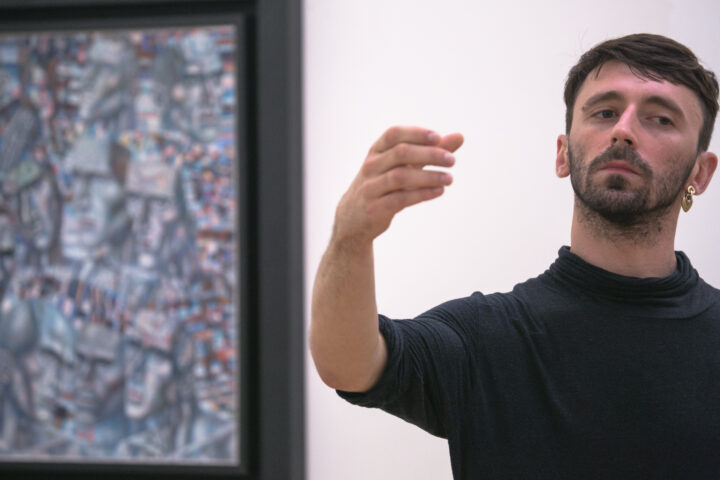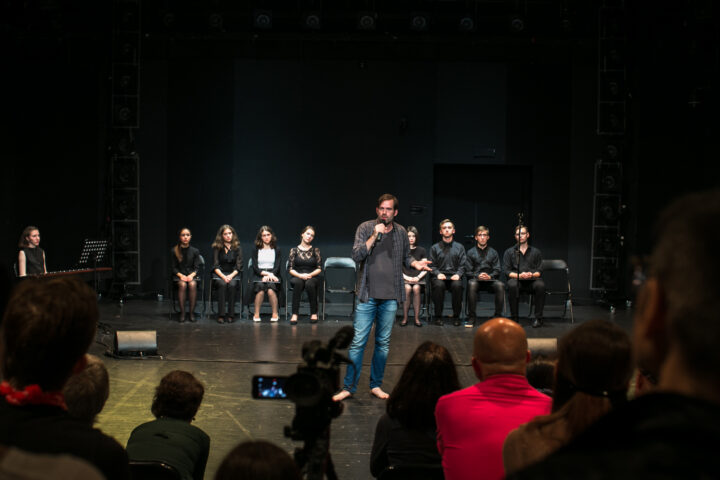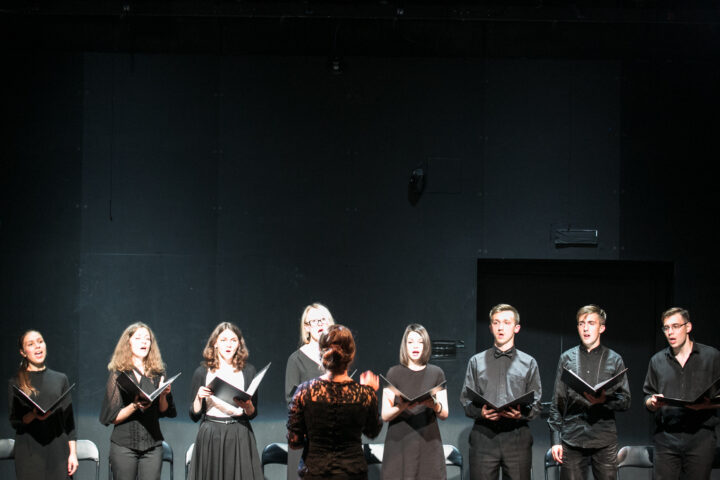Sense of Possibility remembers the revolution in many different ways — some- times directly, sometimes indirectly, sometimes only implicitly. But it always aims to awaken our sense of possibility and to find that possible utopia in our own times through the retrospect of history.
The choreographer Alexandra Pirici examines the history of relations between art and politics in front of the Avant-garde paintings and sculptures of the Russian Museum while the German theatre collective AndCompany&Co – on stage in Russia for the first time – re-writes history with the help of art by bringing together The Beatles and the Bolsheviks. Dutch composer, musician, and performer Thomas Myrmel’s con- cert-performance (Re)writing the (Fe)male Okt (Re)volution is based on John Reed’s famous journal of the Revolution, Ten Days That Shook the World, as interpreted by the German writer Heiner Müller — although Myrmel shifts the focus and high- lights the role of women in the depicted events. In the performance Apartment 44, which unfolds in the flat of poet Anna Akhmatova and her husband, the influential critic and art historian Nikolai Punin, St. Petersburg artist Olga Jitlina tries to figure out what’s left of grad aims of the avant-garde. The young art group Vokrug da Okolo dedicated their Red Noise audio tour to Narvskaya Zastava — the architecturally exemplary area that was built to celebrate a decade since the Revolution and now is both a focal point of social problems and an outstanding Constructivism monument. Other works in the programme connect to the historic anniversary more indirectly: In his multilayered monologue How to Win Friends and Influence People, Swiss director Boris Nikitin searches for the answer to the question of faith, denial and self-improvement in the Biblical parable about Thomas, the ever-doubting Apostle, while in Afghan-Kuzminki poet Pavel Arsenev and author and theoretician Keti Chukhrov demonstrate how the utopian conceptions of relationships between men and women, which appeared in the beginning of last century, have turned into neo-liberal gender fights.
Sense of Possibility is closely connected to specific locations in St. Petersburg: From the Constructivist and Suprematist paintings of the Russian Museum, and the former apartment of Anna Akhmatova, to the Postal Workers’ Culture Club, a Protestant church rebuilt in the Constructivism times, and the Narvskaya Zastava district with its impressive Traktornaya street, and the diverse Apraksin market whose history goes way back before the revolution.
One of the recurring themes of the programme is the role of women in those years, the era in which many basic demands were not merely declared, but (at least theoretically) also fulfilled. Sense of Possibility enables encounters with very different female characters: avant-garde artist Natalia Goncharova; poet Anna Akhmatova, who was critical of avant-garde; Maria Bochkareva, who commanded the Women’s Battalion that oversaw the Winter Palace defense; and many others, whose names can’t be found in any history book like the seamstresses of the Narvskaya Zastava district, or the fictional Angie O. from Mausoleum Buffo. The idea of real equality that seemed so achievable to everyone in 1920s – its still remains a utopian aim.
A project by Access Point Festival & the Goethe Institut St. Petersburg
